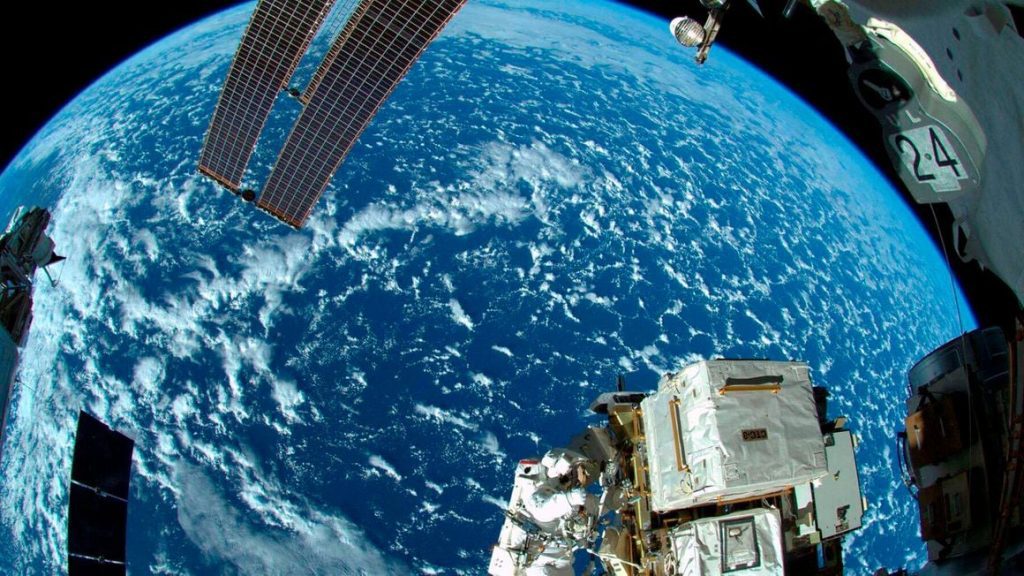At least 13 African countries, including Kenya, Uganda, and Rwanda, have launched satellites bearing their national flags and financed by taxpayers’ money. However, years on, none have managed to rise to the task of collecting Africa-specific data from space.
Recently, the African Union Commission (AUC) announced a new partnership with the European Meteorological Satellite Agency (Eumetsat) to use their earth observation satellites to collect Africa-specific data. This highlights the insufficiency of African-made space equipment.
The agreement “opens the way for access by African environmental and meteorological services to Eumetsat’s data from its next-generation satellite systems,” according to a dispatch by the European agency.
“It provides the framework for Eumetsat and AUC to cooperate on deploying new infrastructure to receive data and build educational materials to ensure the biggest possible impact from the satellite data.”
The importance of satellite data has increasingly become evident, especially in Africa, where natural calamities linked to climate change have recently caused significant loss of life and property.
“There needs to be more awareness around the benefits of using space technology, as it can solve about 60 percent of the problems Africa is facing,” notes Samuel Nyangi, an astronomer and team lead at the Amateur Astronomical Society of Kenya.
“Satellites have multiple uses, including navigation, scientific research, earth observation, communication, and weather forecasting, and there’s no doubt Africa needs them,” said Wanjiku Chebet Kanjumba, a US-based Kenyan aerospace engineer and CEO of space infrastructure firm Vicillion.
The rush to space, driven by the need to leverage satellite technology for better data collection for climate change mitigation, among other uses, has seen Kenya as the latest nation to launch a satellite in April last year.
However, one year on, the only earth observation data provided by the Kenya Space Agency (KSA) comes from the United Nations Satellite Centre (Unosat), NASA, and other third-party sources, indicating that the Taifa-1 satellite launched last year has yet to send meaningful data back home.
Uganda’s earth observation satellite, PearlAfricaSat-1, launched in November 2022, failed to accomplish its mission due to delays in constructing the earth station for command. Last year, the Science and Technology ministry stated that it had expired and sought funds to develop a new one.
The narrative is similar across Africa. Rwanda’s Icyerekezo and RwaSat-1, both launched in 2019, have achieved little of significance, adding to the growing number of African satellites with no success stories.
Other African countries that have sent satellites to space include South Africa, Egypt, Nigeria, Algeria, Morocco, Angola, Ethiopia, Ghana, Mauritius, Sudan, Tunisia, and Zimbabwe, according to data by consultancy firm Space Hubs Africa.
While some of these satellites may have yielded meaningful results, the recent deal between Eumetsat and the AUC indicates that they are not enough to serve the entire continent.
Currently, the value added by earth observation satellite data is estimated at $266 billion annually, and this is poised to grow to over $700 billion by 2030. The cumulative contribution to the global GDP between 2023 and 2030 is expected to hit $3.8 trillion, according to a study by the World Economic Forum.
Ms. Kanjumba argues that for Africa to take advantage of this growing industry, it must prioritize investments in space infrastructure. Given its proximity to the equator, the continent is well-positioned for satellite launchpads compared to other regions.
“Catching up with the United States in space exploration will take centuries, but instead of chasing them for data or launch services, we should capitalize on the unique geographical advantage our land provides,” she said.
She explained that most satellite launches in the US take place in Florida due to its proximity to the equator. Many African countries are closer to the equator, making them more suitable for such launches, yet they continue to rely on the West for data.
“We have provided African nations with data and capacity-building support for over two decades within the framework of the European Union-Africa Partnership,” said Eumetsat’s Director-General Phil Evans.
AUC’s commissioner for Education, Science, Technology, and Innovation, Mohamed Belhocine, described the partnership as “timely,” noting that it complements “Agenda 2063 and the African Space Policy and Strategy in deploying satellite data to address environmental and climate challenges.”
On the same day that AUC deepened its reliance on European satellites, the European Council adopted conclusions to crowd in investments into the region’s space industry and boost its competitiveness.
“The space sector will play an increasingly important role in Europe’s strategic autonomy,” said Thomas Dermine, Belgian State Secretary for Strategic Recovery and Investments.
“An ambitious space policy will create business opportunities and quality jobs in this fast-growing sector. It will also help our economy, both industry and services, accelerate the green and digital transitions and better prepare us to compete globally.”
Efforts to boost private sector investments in Europe’s space industry continue, even though the region already boasts some of the world’s most advanced space industries and allocates significant annual budgets to the sector.
According to data from Statista, the European Union spent an estimated $2.8 billion on space programs last year. Individual member countries such as France, Germany, and Italy also spent between $2 billion and $3.5 billion, highlighting the region’s enormous public spending on space programs.
In contrast, Africa’s public spending on space programs was just over $500 million last year, the lowest globally, with only 20 countries having an active space program.
Both Nyangi and Kanjumba commend the initial steps Africa is taking to advance its space industry, but agree that more needs to be done to accelerate its growth. “The most important thing is capacity building because without experts to analyze the data from African satellites, the data is not helpful,” said Mr. Nyangi.
“The best approach is to use our advantageous location to build a spaceport, attracting foreign players to come to our country. This will help us gain knowledge and technology, allowing us to develop our people,” argued Ms. Kanjumba.
Kenya has already begun its race to construct a state-owned spaceport. According to their 2023-2027 Strategic Plan, the KSA hopes to have at least 80 percent of it completed by 2027














